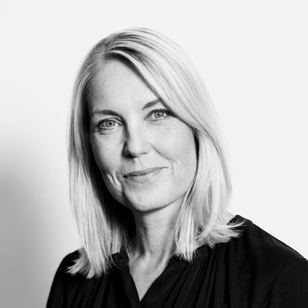Everyone is talking about sustainability. Everything has to be ‘sustainable’, from our electricity, cars and clothes to our retirement savings. Granted; it is quite impressive that three Danish companies sit on the Top-6 Corporate Knight’s ranking of the world’s most sustainable companies. It leaves two questions that need answering. How do we ensure that the consumers recognize this effort? And how do we ensure that it is not just the large companies with powerful PR departments, who are celebrated for their efforts?
Three Danish companies earned a spot on Corporate Knights’ Top-6 Index of the world’s most sustainable corporations. Ørsted occupies the distinguished first-place, followed closely by, 2019’s sustainability ‘winner’, Chr. Hansen on second place. Truth be told, it is beneficial for everyone, not least the world’s climate, that the focus is upon sustainability. Nevertheless, Rome was, as you know, not built in a day.
Through my work with identity, business strategy and brand development, I am unfortunately experiencing, how it is becoming increasingly complex to successfully communicate sustainable initiatives. As of today, numerous labelling systems already exists, firstly to guide the eco-conscious consumer, but also to provide companies with an opportunity to be recognised for their sustainability efforts. This is also made evident through communication on packaging, commercials etc. In addition to the array of labels, which range from organic, fairtrade and animal welfare, the UN’s Sustainable Development Goals (SDG’s) also provide guidance, and should not be forgotten. The question however remains; how should the accomplishment of these efforts be communicated, so they are understood – while highlighting the fact that not only the large companies should be acknowledged for their achievements?
I encounter numerous companies, that in the pursuit of creating a sustainable organisation, commit themselves to an overwhelming amount of noteworthy initiatives. This results, more often than not, in a blurry and sometimes even unclear communication. The scenario is common and confirmed in MediaCom Denmark’s latest report on ‘Sustainable Brands’, in which it appears that; “more than half of all Danes lack transparency in which companies act and produce most sustainably”. One could thus argue (and fear), that large and resourceful companies, will be able to communicate strong messages, through well-constructed PR initiatives, creating a perceived idea of sustainability, despite possibly, in the large scale of things, actually being less sustainable.

Purpose in the Name of Sustainability
A completely different debate, that I will not elaborate upon in lengths here, is the one on Purpose. Today, everyone needs a Purpose, or the so-called Why. These are concepts that in recent years have become increasingly widespread after Simon Sinek introduced them in his book ‘Start with Why’ in 2009. The concepts are a part of my daily work at IDna Group, where I meet an increasing amount of companies, that wish to place ‘Sustainability’ at the very core of their organisations – they wish to make it an integrated part of the company’s Purpose/Why. However, with this approach, we may have to make the alarm bells ring. Sustainability, placed within every company’s core, is not necessarily the right strategy for everyone. For DONG, it clearly was. They choose to go “all the way” – they committed to making sustainability their overarching goal and went “all in”. A change of name to Ørsted, while divesting certain business areas has resulted in a turn-around strategy that in a relatively short amount of time has created great results. This goes to show, that a true Purpose creates direction, and I firmly believe that Ørsted is a textbook example of the following; it truly pays off, when you have the gut to live your Purpose 100%.
As mentioned though, Ørsted’s approach is not suitable for everyone. Looking at Chr. Hansen, 2019’s most sustainable company, it is evident that they have chosen a different route. For Chr. Hansen, sustainability is not their ultimate Purpose/Why, but instead one of their How’s – the approach to how they pursue their purpose.
As a company, organisation or brand, one has to consider, to what extent sustainability should and ought to steer the direction. For some, it should possibly be at the core for a period of time, to be followed by new and perhaps, at that time, more urgent and relevant agendas. This is viewed increasingly important, in a near future, where ‘Sustainability’ turns into pure compliance – not a competitive advantage, but simply a competitive requirement if you will.
“Sustainability always means better. Better for the planet, better for the people, and better for the long-term health of the global economy.”
Don’t get me wrong – I am a loyal advocate of committing to and working towards becoming a truly sustainable business, and I am deeply concerned over those companies, that still has not taken an active stance on the matter. That being said, I believe that companies, organisations and brands, should pay special attention to bringing a clear-cut message across, enabling easier decoding for the individual consumer – without it being at the expense of the sustainability effort itself. As Euromonitor International puts forward in their report ‘How to be a sustainable brand’; “Sustainability always means better. Better for the planet, better for the people, and better for the long-term health of the global economy.”
Therefore, dear companies, organisations and brands. How do we ensure that sustainability enters the top of your agendas, acting to create real change while enabling your core target group to understand the true value behind your efforts? – These are questions I am looking forward to following and engage in myself in the future.
Contact
Latest news and Insights
Identity first: The key to lasting strategic impact
Many of us have heard the numbers… 60-70% of all strategies fail. And if we go all the way back…
Company Identity as an enabler for business transformation
diconium was founded in 1995 and has grown into one of the leading players in building e-commerce solutions. In 2020,…
IDna Group Supports SH Group’s Organisational Transformation, Paving the Way for Change of Ownership
IDna Group has supported the organisational transformation of SH Group, a global company offering smart handling technology solutions to the…
Aligning the organisation for transformation and growth
After a busy time with exciting projects, we had the opportunity to reflect on one of our customers’ pervasive challenges.…

